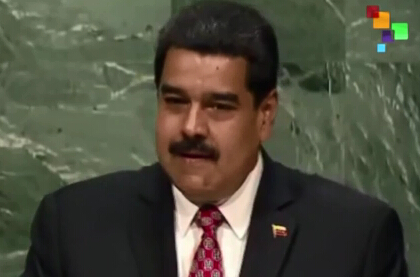Venezuela's president is giving state employees three-day weekends in April and May in an attempt to save electricity.
四五月期间,委内瑞拉总统给国家公务人员三天周末假期,试图节省电力。
A prolonged drought in the country has depleted water levels at hydroelectric power plants. Levels at a dam that supplies 75 percent of the capital's power are getting so low, the government might have to shut it down soon.
国家长期的干旱已经耗尽水电站的水位。一个供应首都百分之75电力的大坝水位正越来越低,政府可能会很快不得不将其关闭。
In addition to temporarily cutting the state's workweek, President Nicolas Maduro is asking everyone to drastically cut their energy consumption. Heavy industrial companies will also be asked to cut energy consumption by an additional 20 percent.
除了暂时减短国家工作周时间,总统尼古拉斯·马杜罗要求大家大幅削减能源消耗。重工业企业也将被要求削减额外百分之20的能量消耗。

It's unclear how the shorter workweek for state employees will affect schools or the private sector. Regardless, not everyone in Venezuela is convinced the plan will actually work, since workers may still use electricity at home.
目前还不清楚国家公务人员缩短每周工作时间会如何影响学校和私营部门。不管怎样,在委内瑞拉并非所有的人都相信这个计划会真正实行,因为工人们可能仍会在家里用电。
Venezuela has already topped the Cato Institute's Misery Index for 2015, thanks to high inflation and unemployment rates. And potential blackouts throughout the country aren't likely to improve the country's situation.
委内瑞拉已位于2015年卡托研究所经济失调指数之首,由于高的通货膨胀率和失业率。全国性停电不太可能改善国家的情况。
译文属可可原创,仅供学习交流使用,未经许可请勿转载。











